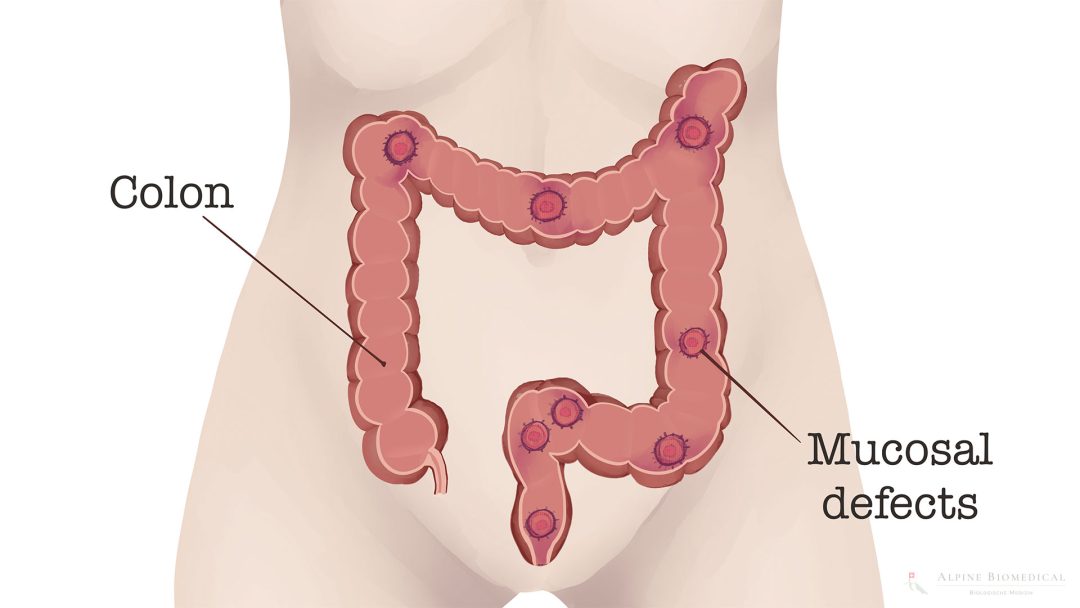Ulcerative Colitis

Alongside Crohn’s disease, ulcerative colitis is one of the chronic inflammatory gastrointestinal diseases. It mainly affects the large intestine and typically begins in the rectum, but then spreads further towards the appendix. The disease often progresses in episodes, accompanied by bloody and mucousy bowel movements and possibly fever and abdominal cramps. Symptoms outside the intestine can also occur, such as inflammation of the eyes and joints. Prolonged bleeding can lead to anemia.
Symptoms of Ulcerative Colitis
Ulcerative colitis begins insidiously and shows the following symptoms:
- Stomach pain and abdominal cramps, predominantly in the left lower abdomen
- Pain after a bowel movement
- Frequent, bloody and slimy bowel movements
- Diarrhea
- Loss of appetite
- Weight loss
- Tiredness, exhaustion and fatigue
- Fever
- Anemia due to prolonged bleeding
- Iron deficiency
The large area of inflammation in the intestine leads to a strong activation of the immune system, which “robs” the body of a lot of energy. Tiredness and fatigue are the result.
Cause of Ulcerative Colitis
The exact cause of ulcerative colitis is unknown. However, it is assumed that the disease occurs due to a combination of causes.
The causes of ulcerative colitis include:
- Environmental influences with toxic stress on the body
- Nutrition
- Immune disorders
- Infections
- Psychological stress
- Overactive immune system
- Genetic predispositions
Treatment of Ulcerative Colitis
Conventional treatment focuses on controlling the intestinal inflammation, alleviating the symptoms and preventing complications. This is done with anti-inflammatory drugs, immunosuppressants, biologics and, if necessary, surgical interventions.
From a complementary medicine perspective, the focus is on intestinal cleansing. This is intended to correct a leaky gut, a disturbed balance of the intestinal flora and digestive problems. An individual approach from an experienced therapist is important for this.
The lost nutrients should be correctly replenished through suitable measures such as infusion therapy or nutritional supplements. A permanent lack of vitamins, minerals and trace elements can further impair an already weakened body.
Lifestyle changes such as a healthy diet, stress management and exercise are also crucial and should be adapted for patients.
Med. pract. Dana Hreus M.A.
Ulcerative colitis can have a major impact on patients' quality of life. It is crucial to look at the cause when diagnosing and treating the disease.

Further information
The information listed contains relevant topics and serves to improve understanding.